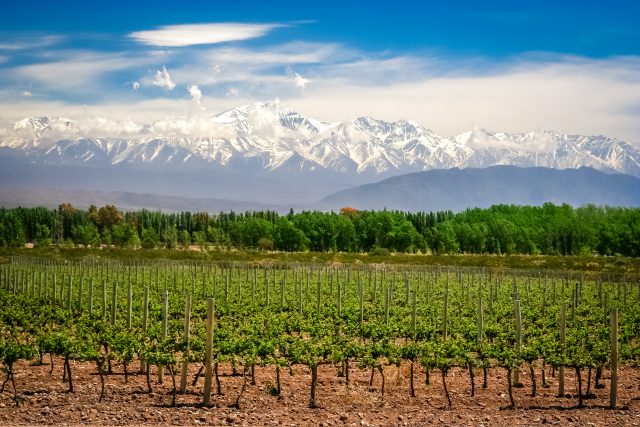This website uses cookies so that we can provide you with the best user experience possible. Cookie information is stored in your browser and performs functions such as recognising you when you return to our website and helping our team to understand which sections of the website you find most interesting and useful.
Wines of Argentina celebrates World Malbec Day
Wines of Argentina have celebrated World Malbec Day yesterday (17 April) in the 14th year of the global promotional event that was created by the organisation.

Using #MalbecArgentino on social media, the brand created a special area on its website for the event outlining the variety and Argentina’s role in its promotion.
Citing the variety’s story of “success and evolution”, the winemakers of Argentina are aiming “to build a future in which the environment, society, culture and production live in harmony and balance”.
Sustainability
The wine body argued that Malbec is a “sustainable option”, which was “made possible by the commitment assumed by Argentina to preserve the environment and generate a positive impact on it, societies and economies”, driving towards a “more conscious, more empathetic, more humane future”.
It said the country makes a range of organic, biodynamic and ecological Malbecs, and the range of wines produced was “a reflection of the good practices carried out by the Argentine wine industry in environmental matters”, such as reducing the carbon footprint, rational water management and responsible waste management.
For Argentine viticulture, sustainability was “the best way to produce premium wines and preserve the environment for future generations”, it said. In addition, it highlighted the role of circularity in production, including implementing drip irrigation systems guaranteeing 95 to 100% water efficiency, and alternative energy forms, such as photovoltaics, to avoid fossil fuel use and generate clean energy.
The group also highlighted how some wineries support education, and other initiatives include improving housing, optimising water distribution networks, and engaging in dialogue with native communities in certain regions.
Organic
Both regenerative and organic viticulture are growing rapidly in Argentina, it said, and producers apply these practices to create “high-quality biodynamic wines, taking into consideration the ecosystem, location, people, and animals in the production process”.
It claimed that the country had “a natural advantage over other regions worldwide” in the creation of organic wines, as being at the foot of the Andes, the continental and dry climate was “advantageous”, and the scarcity of rainfall and the abundance of sunlight “make diseases nearly nonexistent”.
In all, this meant minimal intervention was possible in the vineyard.
Diversity
Argentine Malbec was also the most widely cultivated variety and “the one with the highest production and the most demanded internationally”, it said, with production in 17 provinces.
The group added: “It is the variety that identifies and represents Argentina, because it is the one that best expresses the characteristics of its land and its complex diversity.
“Argentine Malbec continues to promote the detailed study of the different terroirs from which it emerges and the creativity of Argentine winemakers and producers that make possible its wide range of styles and profiles.”

